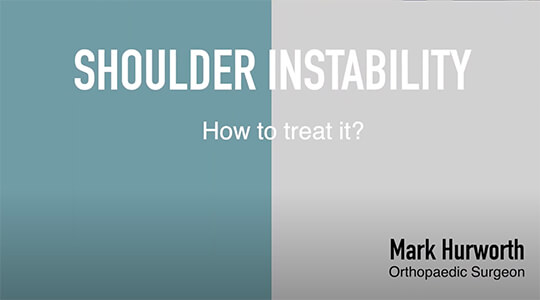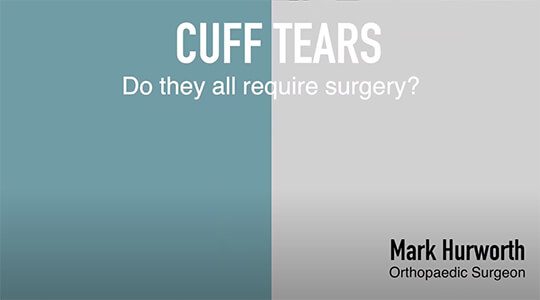Rehab after shoulder surgery
Rehabilitation after shoulder surgery
Shoulder conditions can be very uncomfortable, after injury or surgery. It is important that you only enter into surgery if you are prepared to work hard on rehabilitation both before and afterwards. Equally, we know that your body often has a significant ability to improve without surgery so it is always worth thinking about these things before seeing me. Below we go through some tips and tricks about how best to prepare and recover afterwards.
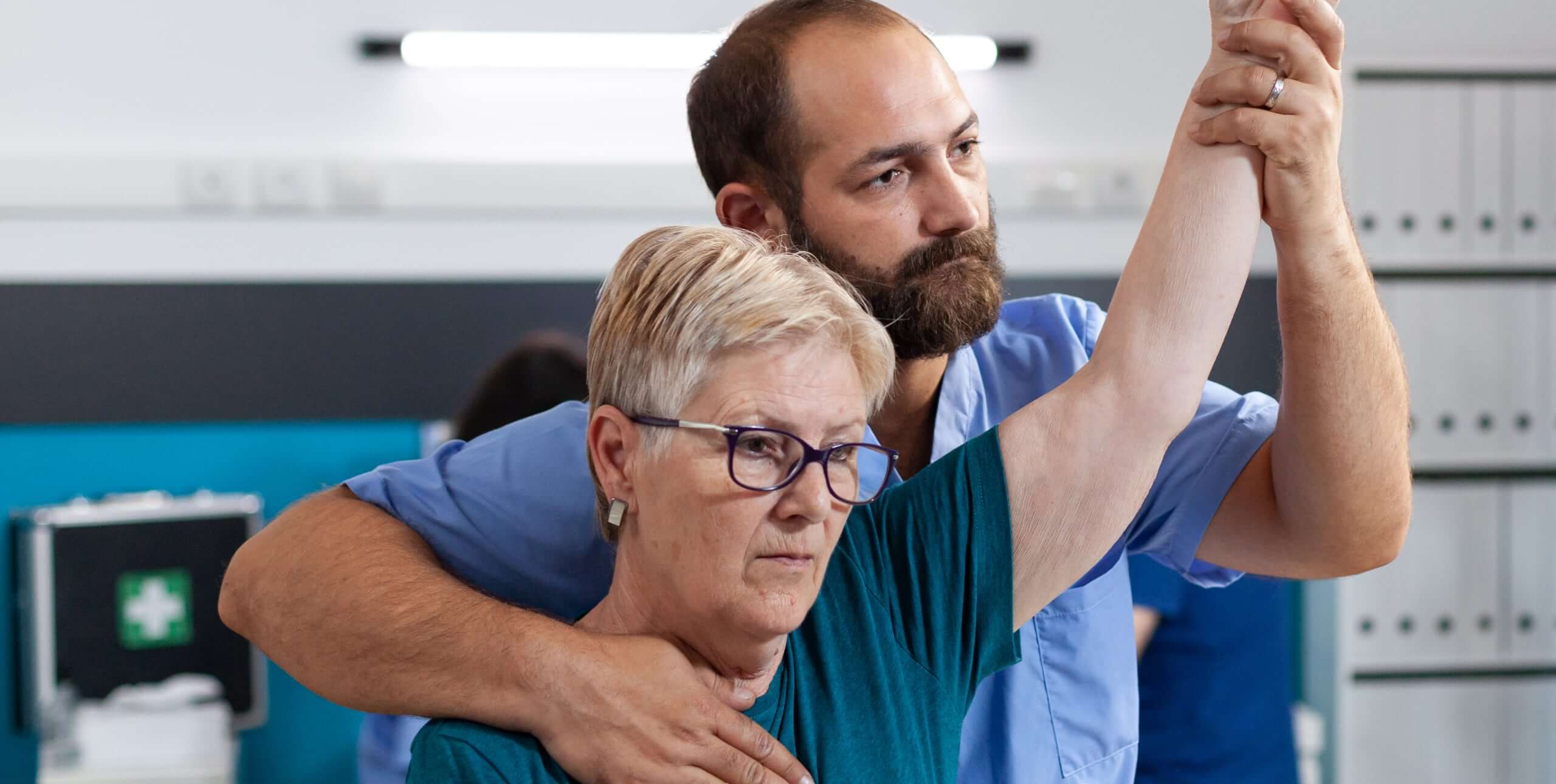
My orthopaedic practice in a nutshell
Exercise after shoulder surgery
Quickly regaining movement and why EXERCISE matters
Your arms are designed to move. Therefore, one of the most difficult decisions for me as a surgeon is to restrict motion, for example when I do a rotator cuff repair in your shoulder.

Dr Mark Hurworth, Orthopaedic surgeon Perth
Joints that are not used get stiff, and muscles consequently start shrinking; but the good news is that muscles can be regained, just like joints can be retrained. This is where effort from your end -what we call patient agency – makes a big difference.
Physiotherapists are very useful in showing you how to move effectively, but increasingly in the post-COVID world, we are emphasising remotely monitored exercise programs that are done in the comfort of your home.
Here at my orthopaedic practice in Perth, supported by research, we are developing innovative and sophisticated pathways for home-based self-management as you recover.
These pathways apply in different circumstances:
- Without surgery: This ties in with one of the big topics I discuss with patients, ways to avoid orthopaedic surgery.
- Before surgery: The more you get in shape before you have surgery, the better.
- After surgery: This is where you will hear me talk about the static bicycle a lot.
The innovative approach makes use of remotely monitored machines with personalised programs in the comfort of your own home. Only if you did not hit the target would we refer you to a specialised physiotherapy service.
In visual terms, exercise makes a difference in the following way:
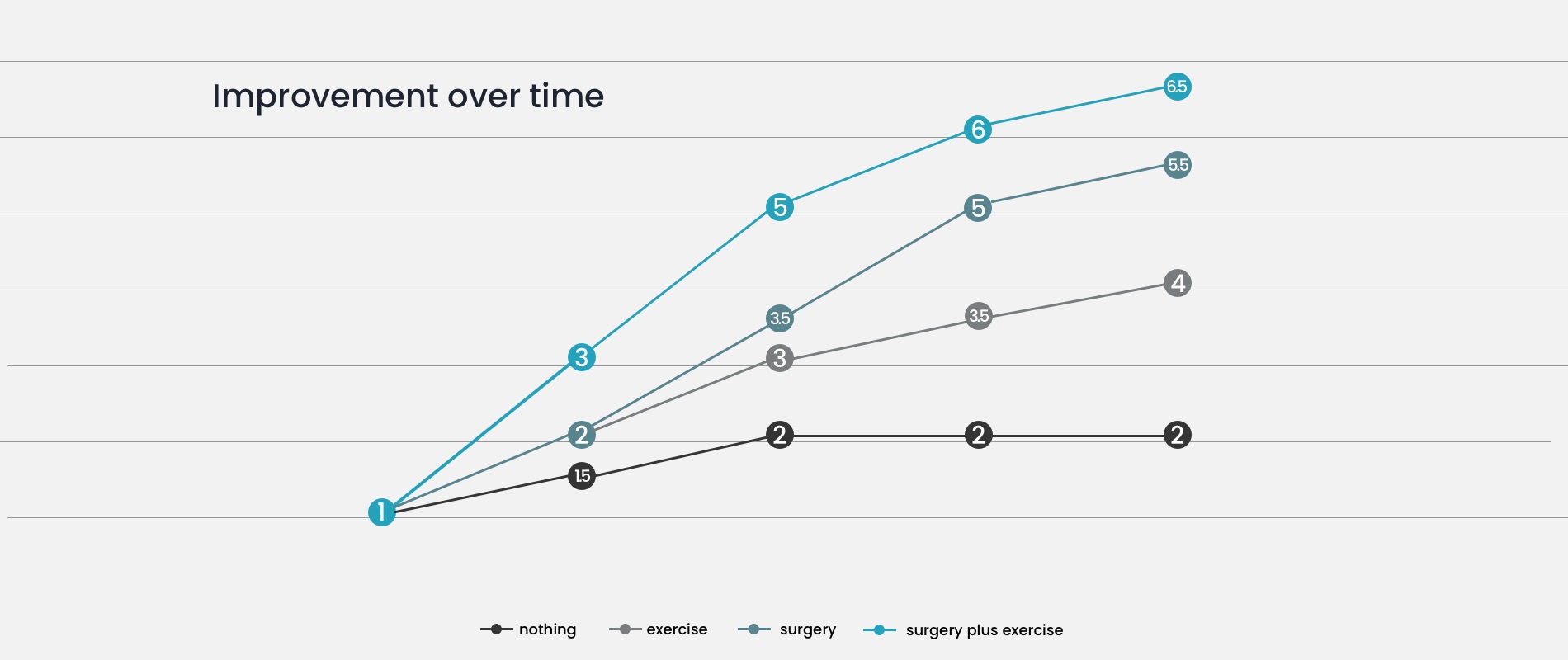
Rest after shoulder surgery
Overdoing it or starting too soon
The amount of exercise matters too when we talk about recovery. It will depend on the surgery that you had.

Dr Mark Hurworth, Orthopaedic surgeon Perth
Rest is important, as is exercise. What we do is choose exercises that work the muscles that are safe to do so, while protecting other structures that need protecting. In that way, we will try to encourage you to do the right amount of exercise: At least 150 minutes of exercise per week is now recognised as “standard” for maintaining good health. So it is all about finding that sweet spot, the right amount of good exercise, not overdoing it and planning each step of your recovery carefully.
Story continues below video gallery
Videos about shoulder conditions and surgery
Sleep matters after surgery
The importance of sleep.
It seems logical, but sometimes it is difficult to think straight when you are uncomfortable. Less sleep, or poor quality sleep, affects other things profoundly, such as pain perception in particular. Therefore, anything that can be done to improve sleep matters. Normally, I recommend using natural light where possible ie letting your body rhythms sync with natural light and then timing exercise for first light and last light. Be careful with painkillers such as opiates. Try and take something just before bed for pain if you find the pain is consistently waking you up, and also half an hour before exercise.
Sleeping in a sling is a bit of an art form, and many of my patients will sleep in recliner chairs for a few days until they get comfortable.
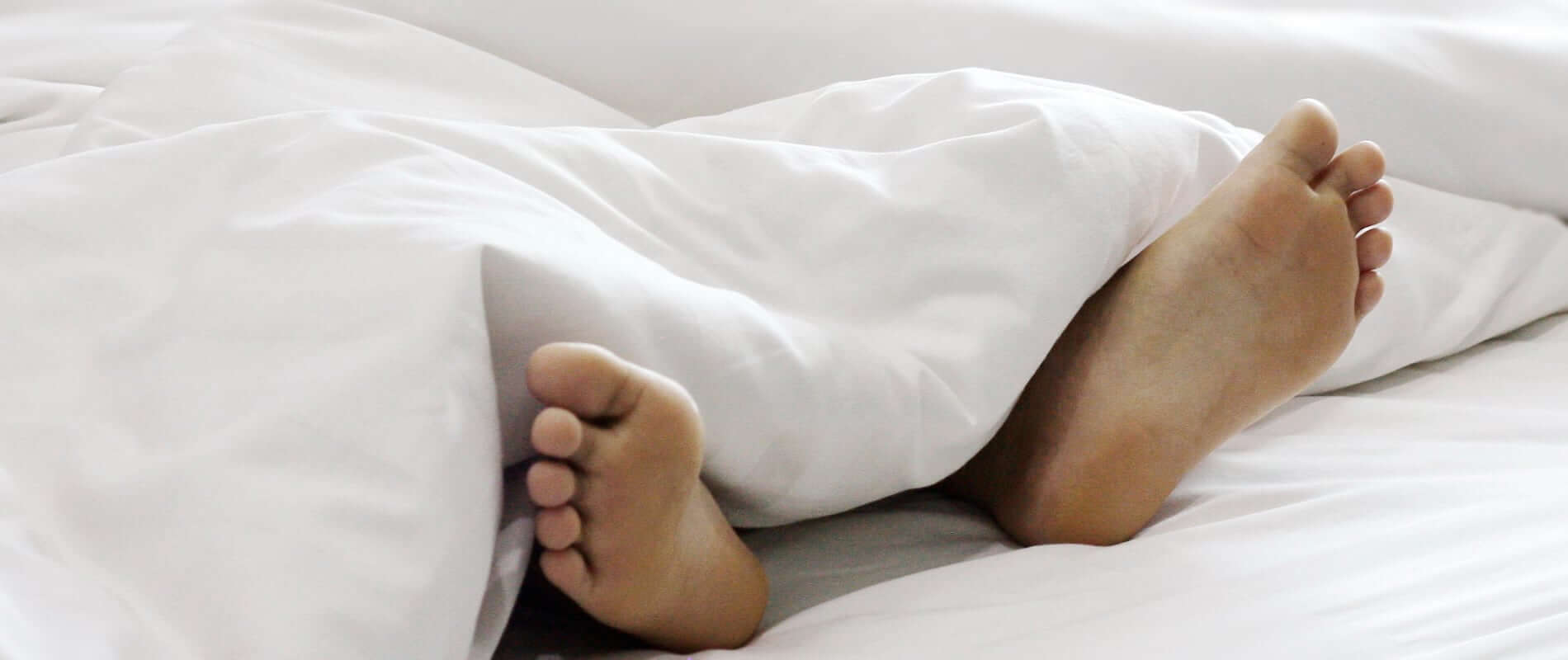
Inflammation after shoulder surgery
What to avoid during your recovery?
You will often hear me talk about taking it easy in the first 48-72 hours after surgery. This is because inflammation worsens after surgery for the first 48-72 hours. In other words, this is when I will ask you to avoid some things and give the joint and soft tissues a bit of a rest.
In the first 72 hours, the acronym we use is ‘RICE’. It stands for:
- Rest
- Ice
- Compression
- Elevation
Remember, recovery is not a one-size-fits-all package. It all depends on your injury and the surgery that you had. This is just to give you a general idea of your recovery process and we will discuss it in full detail when we prepare your rehabilitation program.
Having said that, my favourite exercise for shoulders is as below – start this before your surgery (4 steps).
01 Step 1
02 Step 2
03 Step 3
04 Step 4
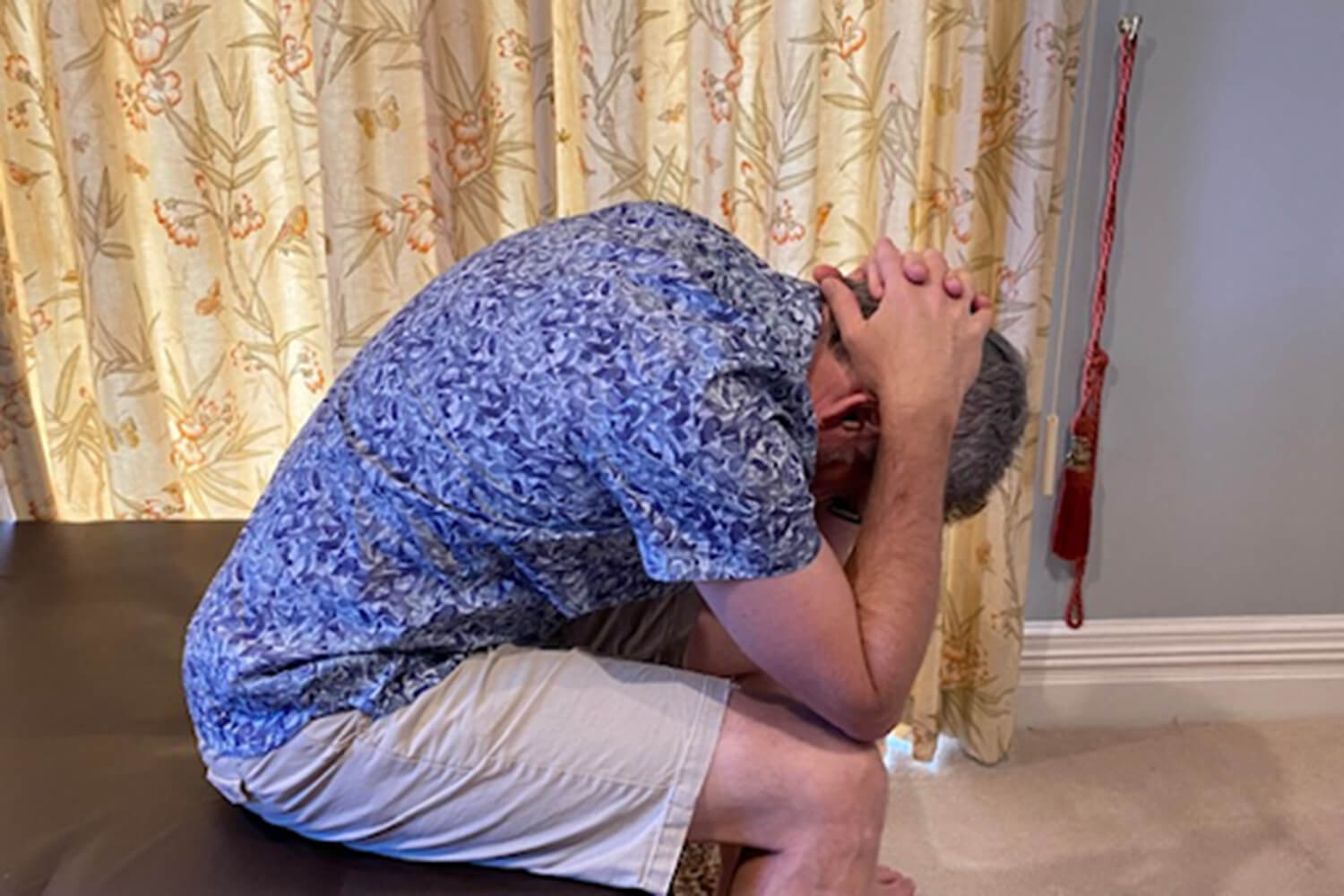
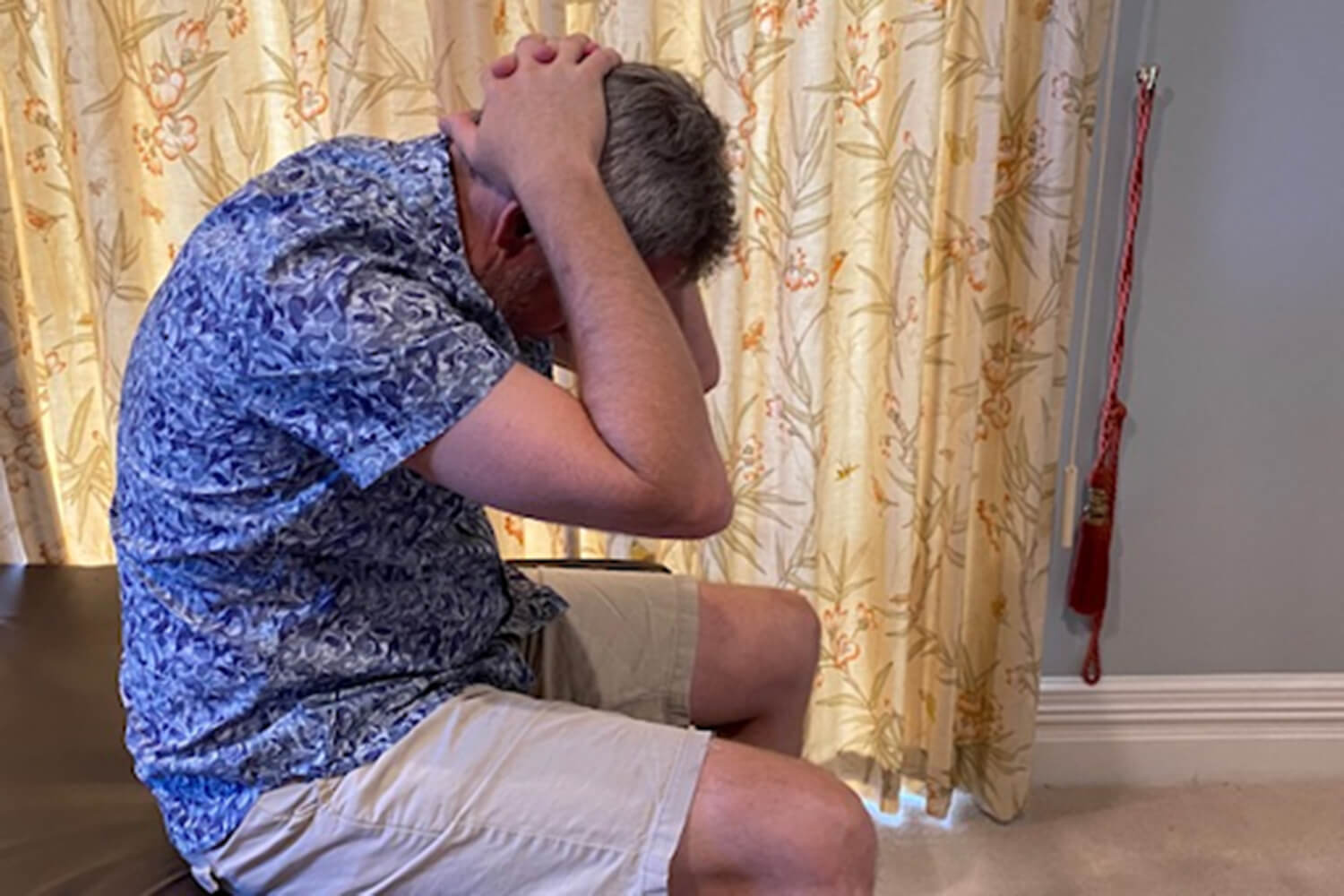
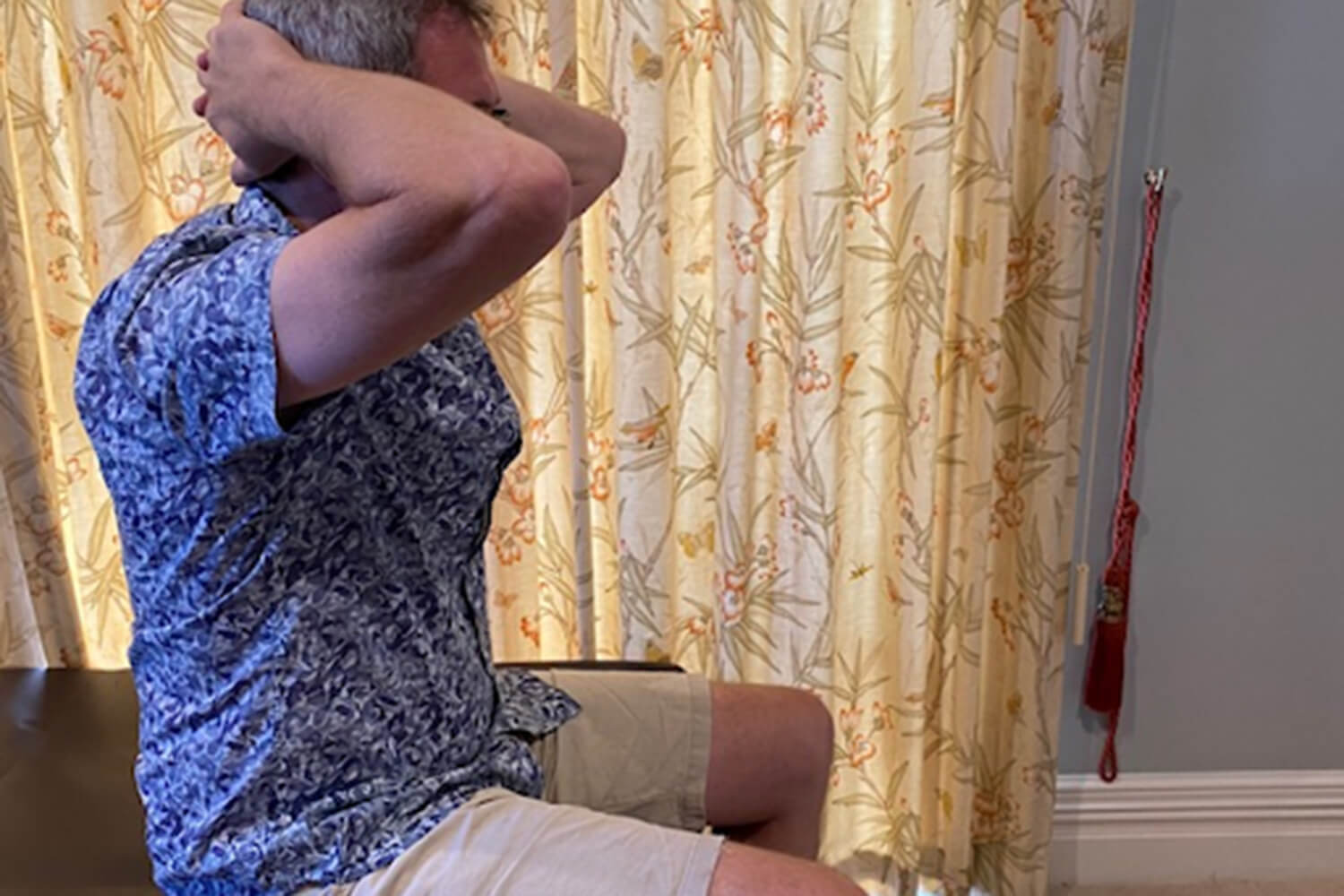
When you have full back and neck extension, bring the elbows out, stretching the shoulder in external rotation – this stretches out the inferior capsule nicely.
Whatever you do, don’t drop your sore arm as it will hurt (!) – always assist with your non-affected side.
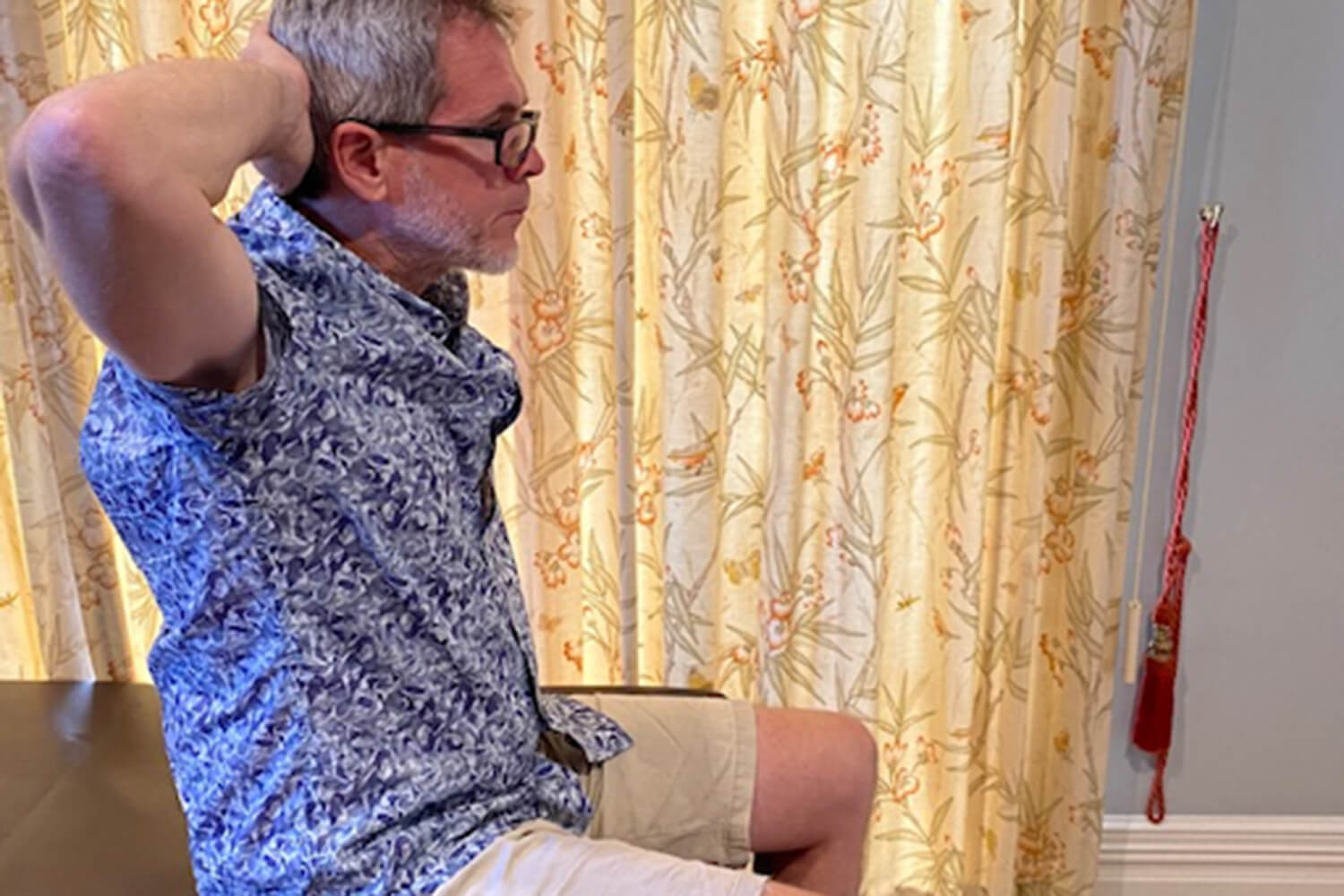
No exercise after shoulder surgery
Why do you keep talking about my effort - doesn’t the surgery just fix things?
Not moving may feel like the correct thing to do, especially if you have been injured at work and people don’t believe that you have a serious injury. However, it is important to realise that not moving always comes at a price and the consequences are predictable: the joints involved get stiff, the muscles waste away. This can happen very quickly, and also take a long time to get back again. So it’s very important to keep moving – in safe ways – even if you have had an injury.
I will occasionally see people who have, as I would call it, gone “down the rabbit hole”. One thing leads to another, not moving leads to stiffness, weakness, more pain, and then unfortunately quite often dependency on medications with addictive properties such as opiates (think Tapentadol/Palexia) and benzodiazepines. We know that long-term use of opiates makes the pain worse, not better.
NEVER START TAKING ADDICTIVE MEDICATION SUCH AS PALEXIA/TAPENTADOL WITHOUT A CLEAR PLAN TO COME OFF THEM. THESE MEDICATIONS ARE HIGHLY ADDICTIVE AND RESEARCH SHOWS CLEARLY THAT THEY MAY MAKE YOUR OVERALL CONDITION WORSE IF YOU ARE ON THEM LONG-TERM.
It will come as no surprise that in these situations we sometimes see catastrophic results.
Rehab orthopaedic surgeon Perth
Why Mr Mark Hurworth for assistance with rehab?
It is important for patients to understand their own contribution to managing musculoskeletal conditions. Most of my patients are keen to do this. Our research revolves around accurate self-management by remotely monitored exercise at home. In that context, optimal recovery is the main goal of your entire treatment and surgery is not the end goal.
I believe that we have not been very good at measuring the impact of what you do as a patient, what we could call patient agency:
- Effort
- Motivation
- Compliance (doing what is recommended)
My experience with many patients here at my orthopaedic practice in Perth keeps confirming it: What you do as a patient makes a huge difference, both for better and for worse.
The good news is that most people want to understand this and that is why our research programs are successful. The benefit for you as a patient is that we now empower you to manage your recovery in the comfort of your own home with remote data collection.
I welcome patient feedback, and we love stories and new ideas that we can share with other patients:
For instance, a patient showed me recently how to get internal rotation going after a reverse shoulder replacement. She would swing her arm backwards in the shower and grab it with the good arm to force it behind her back.
I always welcome your own new ideas to make the most of your rehab.

